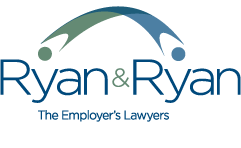In Whole Foods Market, Inc. 363 NLRB 87 (2015), the NLRB held that two rules prohibiting recording in the workplace violated Section 8(a)(1) of the National Labor Relations Act (“NLRA”). The work rules at issue are quoted below:
In order to encourage open communication, free exchange of ideas, spontaneous and honest dialogue and an atmosphere of trust, Whole Foods Market has adopted the following policy concerning the audio and/or video recording of company meetings: It is a violation of Whole Foods Market policy to record conversations, phone calls, images or company meetings with any recording device (including but not limited to a cellular telephone, PDA, digital recording device, digital camera, etc.) unless prior approval is received from your Store/Facility Team Leader, Regional President, Global Vice President or a member of the Executive Team, or unless all parties to the conversation give their consent. Violation of this policy will result in corrective action, up to and including discharge. Please note that while many Whole Foods Market locations may have security or surveillance cameras operating in areas where company meetings or conversations are taking place, their purposes are to protect our customers and Team Members and to discourage theft and robbery.
The second rule stated:
It is a violation of Whole Foods Market policy to record conversations with a tape recorder or other recording device (including a cell phone or any electronic device) unless prior approval is received from your store or facility leadership. The purpose of this policy is to eliminate a chilling effect on the expression of views that may exist when one person is concerned that his or her conversation with another is being secretly recorded. This concern can inhibit spontaneous and honest dialogue especially when sensitive or confidential matters are being discussed.
Whole Foods advanced several arguments in support of these policies. The vice president testified that it was essential to Whole Foods’ core values that employees felt free to speak openly on issues, regardless of whether they were work related. For example, the vice president testified as to annual “town hall” style meetings, where work issues are discussed. The issue raised at the “town hall” meetings are later presented to management, but the identities of the employees who spoke up are not disclosed. The vice president also testified that the policies were vital to the integrity of store meetings, and other team meetings. In addition, Whole Foods argued that absent its recording prohibitions, its internal appeal process for employment termination decisions would be compromised, and that the policies were essential for the handling of employee requests to the Team Member Emergency Fund, which often involved confidential and personal matters.
The NLRB rejected Whole Foods’ arguments, instead finding that the policies violated Section 8(a)(1) because the policies explicitly restricted activities protected by Section 7 of the NLRA, and would “reasonably chill the employees in the exercise of their Section 7 rights.” Specifically, it found that the policies at issue would reasonably be construed by employees to prohibit Section 7 activity. Relying on Rio All Suites Hotel & Casino, 362 NLRB 190 (2015), in which the NLRB held that, absent overriding employer interest, recording in the workplace is protected by Section 7 if employees are acting for their mutual aid and protection, the NLRB deemed Whole Foods’ recording policies unlawful because they did not differentiate between recordings protected by Section 7 and those which are not. In this regard, the NLRB cited to testimony wherein Whole Foods’ vice president admitted that the rules applied regardless of whether the employee was engaged in protected activity.
The NLRB also distinguished Whole Foods’ reliance on Flagstaff Medical Center, 357 NLRB 65 (2011), wherein it held that an employer policy prohibiting the use of cameras in a hospital did not violate the Act. The NLRB noted that the Flagstaff decision was based on patient privacy interests and the employer’s HIPAA obligations, and therefore employees would reasonably interpret the rule as legitimate means of protecting those interests as opposed to prohibiting protected activity. Finding the present case “plainly distinguishable,” the NLRB stated that Whole Foods’ business justification was based on narrow circumstances which were “not nearly as pervasive or compelling as the patient privacy interest in Flagstaff.”
In light of this decision, employers should review any policies restricting recording by employees to ensure that they are tailored only to the extent necessary to accomplish business objectives.
